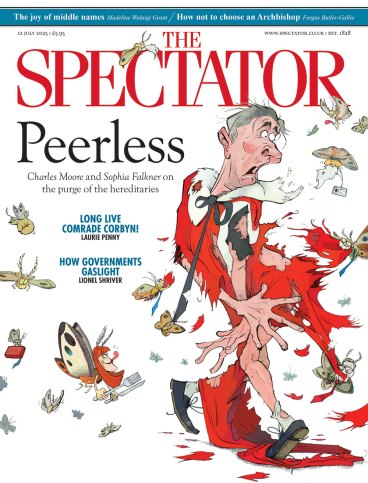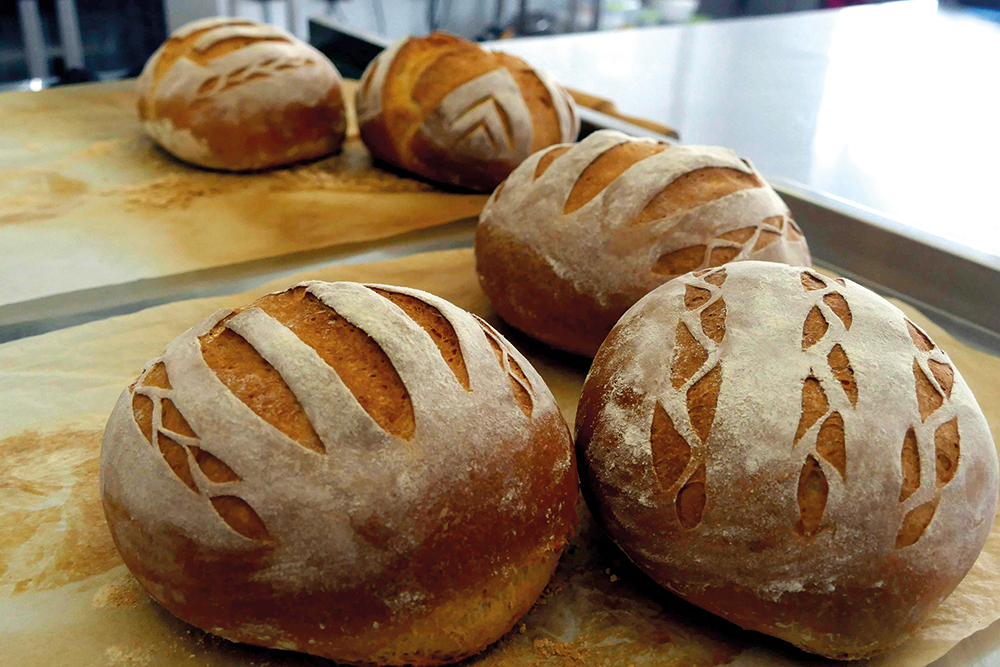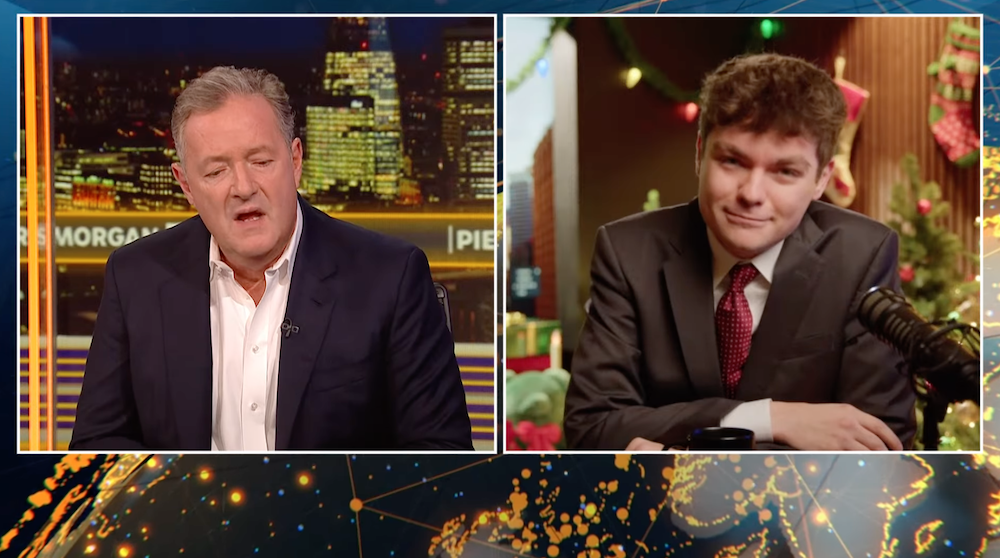
When Russia invaded Ukraine three years ago, the chef Olia Hercules lost the will to cook. With food so deeply connected to pleasure and to her Ukrainian roots, it somehow felt like an unbearable frivolity to be thinking about recipes while family members were under fire. ‘How,’ she asked, ‘can I cook while my brother is running with a gun in a forest defending Kyiv and my mum and dad are living under occupation?’ When her parents finally managed to leave the country and meet her in Italy, she began cooking again to welcome them. First she made borscht, following her mother’s recipe; then pasta. She could have just bought the dough ready-made – ‘but the gates are now open wide, and I can’t stop’, she writes in Strong Roots.
It is no coincidence that two books published in response to the war use food as a prism through which to view Ukraine’s heritage and resistance. Hercules grew up in Kakhovka, in the south; but after studying at Warwick University she settled in the UK and carved out a career as a successful cookery writer, though her family remained back home. When Russia launched its invasion, her parents were living in Kherson, while her brother joined the Ukrainian territorial army.
The book looks back over four generations of family for whom war and displacement have been familiar experiences. From her researches into Ukrainian food, Hercules has hours of recorded interviews with relatives. From their voices a family saga emerges. The trauma she describes, both present and past, makes for moving, often painful, reading. But the writing itself is a joy. Pasta dough is ‘bright yellow – a plasticine sun’; Rakovets, a village near Lviv, is in ‘an area as soft and round as a golden dome of sweet yeasted bread’; shallow-fried pyrizhky buns brush against each other audibly, ‘a delicious kind of friction’; and bunches of herbs lie side by side ‘holding frilly hands’.
Felicity Spector’s Bread & War comes at the conflict from a different angle. The author is a senior producer for Channel 4 News and has been a television journalist for more than 30 years. Having become involved with Bake for Ukraine, a small, non-profit organisation in Odesa which helps source equipment to make bread for those most in need, she spent two years travelling to and from Ukraine, meeting the people producing and distributing food there.
Her parents had fled what is now Dnipro more than a century ago; and she, too, worried about food being an unworthy subject in the context of war: ‘I had wondered to myself whether it was trivial and ridiculous to talk to men who literally fight for their lives about something so basic and simple.’ But, like Hercules, she finds more than just sustenance in food. A short distance from the front line she discovers soldiers preparing to sit down at table to borscht, pickles, salty sheep’s cheese and waffle cake layered with thin slices of orange and thick caramel cream.
We hear of varenyky dumplings being dropped by drones into warzones
It soon becomes clear that food, as well as being a necessity and source of comfort, is a symbol of resistance. We meet a baker who saves her sourdough starter when fleeing Kakhovka and resurrects it and her baking business in Lviv. Volunteers at a charity bakery fling themselves under large metal tables to shelter from shelling and emerge when there’s a pause to roll out their dough again; and we hear of varenyky dumplings being dropped by drones into warzones. Spector frames her bookas ‘the story of unbearable loss, of courage and a strong and proud Ukrainian heritage that refuses to die. And somehow this story is always about bread’.
‘I realise it is only bread, but in our mentality people know that if you have bread on the table, you have food. So I can’t stop,’ says Vlad Malashchenko, the owner of the Good Bread from Good People bakery, based in Kyiv, echoing Hercules’s response when she begins cooking again for her displaced family.
Books written about ongoing world events are by definition inconclusive – and neither of these try to be anything else. Both authors look unflinchingly at the havoc wrought by war and the distinctive character of the people who live in its midst. Hercules talks of ‘the Ukrainian-ness that is in my blood… in our responsibility to hold on to the light’. And as Spector encounters one person after another determined to resist – building businesses, creating new communities, preserving traditions – she sees billboards everywhere proclaiming ‘Kharkiv lives and works’: a defiant assurance that ‘life would go on’.








Comments